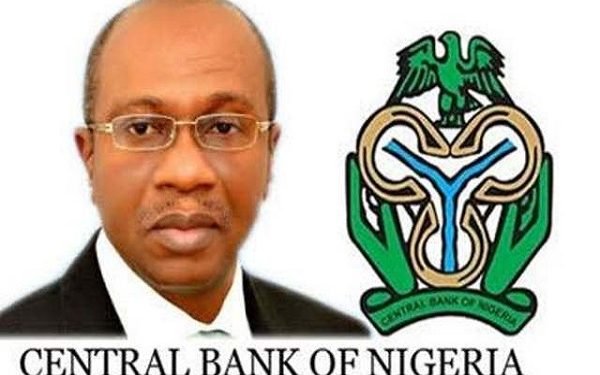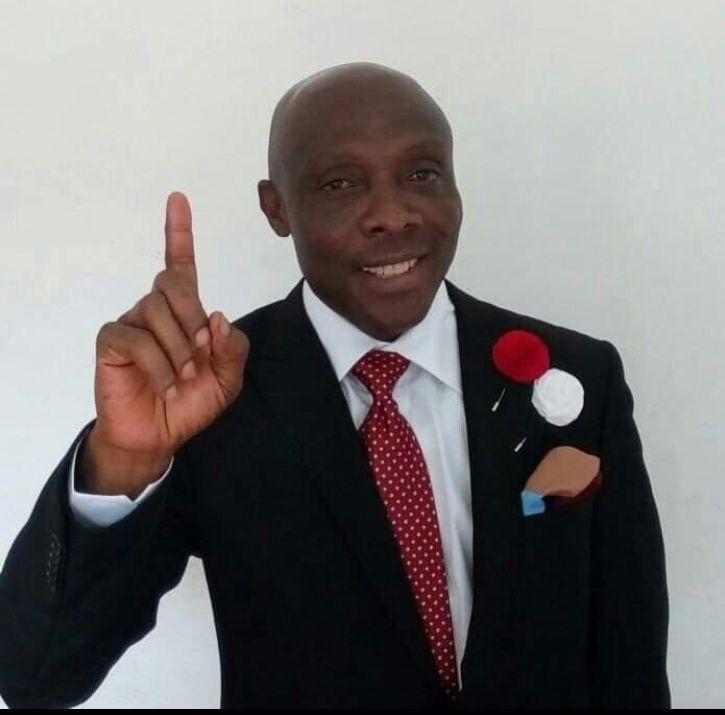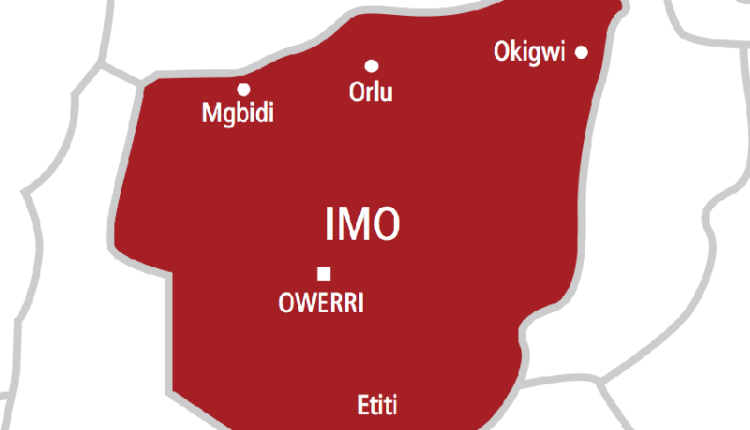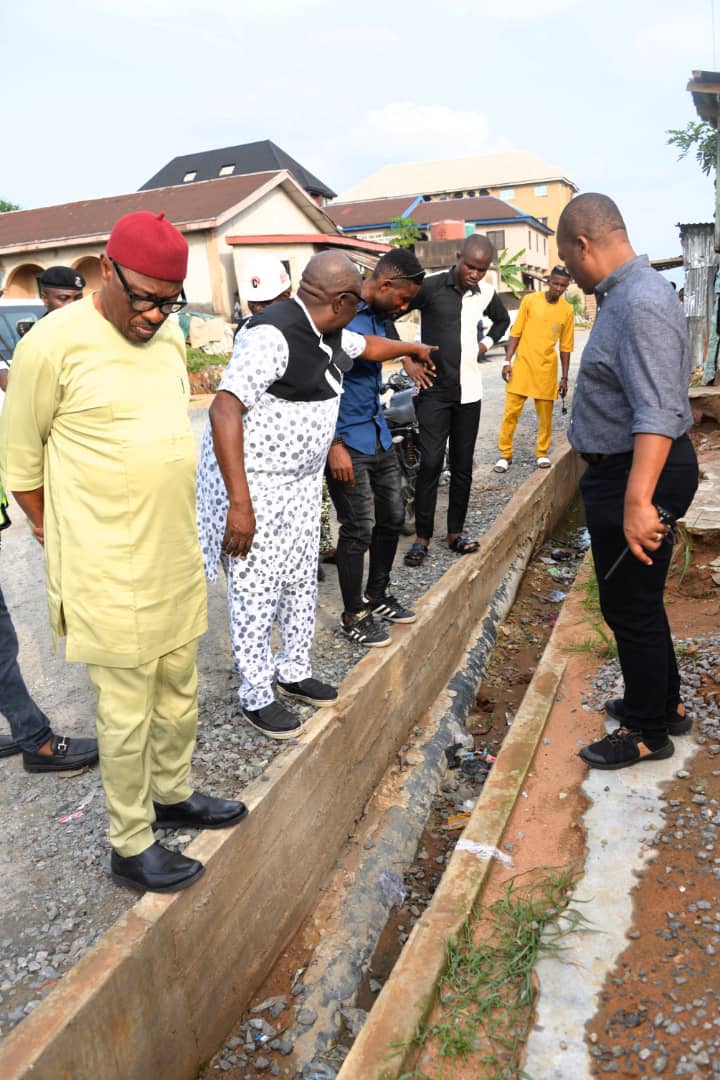Economy: Rescue Funds Came From ’ Cash Reserves Deposits Of Banks, Says Emefiele

Says monetary, fiscal authorities working in unison
…Adds over N2trillion loans disbursed at low rates
Governor of Central Bank of Nigeria, CBN, Mr. Godwin Emefiele, said yesterday that the apex bank has disbursed over N2 trillion loans to Nigerians through its various intervention funds, sourced from the cash reserve deposits of banks.
Emefiele disclosed this in an interview on Arise TV on the sidelines of the on-going Intra-African Trade Fair in Durban South Africa, stressing that contrary to insinuations of divergence between monetary and fiscal policies, the CBN and the Ministry of Finance had been collaborating to implement the economic programmes of President Mohammadu Buhari.
He said the disbursement of the intervention funds, for example, was part of the apex bank’s contribution to the Economic Sustainability Programme, ESP, of the Federal Government.
Emefiele, however, disclosed that the intervention funds were not Federal Government’s money but sourced from the cash reserve deposits of banks, adding that the over N2 trillion disbursed as loans must be repaid by beneficiaries.
Read details of the conversation below:
You are well aware of recent comments from Professor Yemi Osinbajo, the Vice President, and concerns he may have had. Can you give us a brief insight into how the Monetary Policy Committee, MPC, is working well with fiscal policy? What does that relationship look like? How is it working?
I am sure if you ask the Finance Minister — we are always in contact — she will tell you that there are no issues about the monetary and fiscal authorities and when people come up and say there is no synergy, again I wonder where that is coming from. However, let me say this. When COVID-19 hit, Mr President asked the Finance Minister and I to work together to bring out some immediate response and I went back to the Bankers Committee and we came up with immediate response and the Finance Minister and I had opportunity to go back several times to brief the President. So, it is left for you to respond whether there is collaboration between the monetary and fiscal authorities.
President asked us to set up ESPG
Second, after that, the President said we should establish the Economic Sustainability Programme Group, chaired by the Vice President. The Central Bank played an active part in the development of that programme, to the extent the fiscal authorities were only meant to contribute N500 billion and the monetary authorities left to provide almost about N1.5 trillion.
Let me correct this — not as grant but as loans to support people who were impacted by COVID-19, so they can get their business back. And I can tell you this, between 2020 and now, our data shows that we have disbursed close to at least N2 trillion or N3 trillion in loans to households, to micro, small, and medium enterprises, to smallholder farmers, to our pharmaceuticals and health institutions, to some of our large agricultural companies that want to get back again into business, to manufacturing companies who are accessing long term, ten years loan with two years moratorium at single digit rate.
So, I have the data that shows we are playing our part from the monetary side to support the programme of government under the ESP. But if what people expect is that the CBN or monetary authority should hand the money over and give it to the fiscal authorities, unfortunately that is not the way it works. It is meant to be a loan, while it is not meant to be delivered to any particular group in the fiscal side to begin to share. It is meant to be a loan and let’s not forget it is also an ingenuity on the part of the CBN, that we are saying these are funds that are sequestered, these are not CBN money. These are not federal government money. These are funds sequestered from the cash reserve deposit of banks which have to also go back through the banks to those that we are lending money to at 5.0 per cent for 10 years with two years moratorium. I think we have played our part.
If you say you have played your part, that means that perhaps you think the fiscal authorities are playing theirs?
I have not said so. I said the ESP came up and said the fiscal will provide N500 billion but the monetary will fund close to about N1.5 trillion and I have said that data showed that we have done over N2 trillion, that is what I mean about playing our part.
Our job is to complement
Our job is to complement and I believe we are doing some good job and that is why at every opportunity when we hold our Monetary Policy Committee, MPC, meetings, we have always taken the pains to read out what we have done to complement the efforts of the fiscal and the data is there and as long as I am the governor of CBN, we will continue to make this data available to Nigerians and I am saying and I will repeat myself, honestly, in my entire career as a banker, I have never seen where banks, whether they are compelled or through moral suasion, where they will lend 10 years money with two years moratorium at single digit interest rate, I have never seen it and I am just praying even after I have left CBN that this will continue.
Let us talk about the 100 for 100 programme. What does it seek to do and how is that supposed to work? I know it is in its early stage but talk to us more about what that programme seeks to do?
Again, the 100 for 100 programme is another programme that came out of the need, that we must support, we must do everything to create employment for our people and that is why if you look at the framework, we said we must see measurable employment that will be provided by that project.
They have to be new projects. They have to be projects where even in the CBN we do everything possible to provide foreign exchange to import plants and machinery. They have to be projects where by the time the plants and machinery are set up, import content of raw materials will be near zero, so we can begin to turn our eyes at our own available local raw materials, rather than importing them.
Those are some of the issues around that. We felt it is meant again to complement what Mr. President said, that we have to create 10 million jobs in 10 years. That is something we are saying we need to work towards and it will help to reduce the level of unemployment, it will make loans available at cheap rates and it will make loans available for long tenure.
You also mentioned that in terms of the prerequisite, at least 80 per cent of the employees in these new entities have to be Nigerians. Again what is the CBN going to do to make sure these companies meet these requirements, not just to come to you with bare hands open, and then turn their backs on those promises once they get the support they are looking for?
We know that people will like to play some games about it but I can assure you that CBN has the resources to monitor even our current intervention programmes, whether in agriculture or manufacturing. Those people who have accessed those facilities will tell you that at least twice, our people go to check, to investigate, to conduct some kind of investigation to know whether those projects are being set up or they are leaving the objectives.
We’re monitoring beneficiaries
So, I don’t want to say that we will not have a few misses but I can assure you they will be monitored and that is the reason we are very clear. Again, we said we will advertise it, we will scrutinize it and we will monitor, so that Nigerians truly know.
If for instance you took money and it is within the objectives, Nigerians who are going to read your name on the pages of the newspaper will say, ‘no this man didn’t do the right thing’.
Those are some of what I call self-censorship programmes that have to be put in place because we have to truly be very truthful and honest, adopt the best level of governance in programmes meant to create jobs, reduce unemployment and indeed help to even reduce the level of insecurity in our country. We don’t have a choice. We owe our people that. God has put us in a position. It is providence that is cast on us to fend for the people; to provide; to put in place policies that will improve the lives of our people and I dare say, we as leaders don’t have a choice. We must do what is expected of us.
If you take a few steps back about our conversation on foreign reserves, this directive came from you. When it comes to accessing foreign exchange,
there are certain prerequisites people need to meet when they are travelling for business or if they need to pay school fees abroad. If you look at those paying school fees abroad, it was very clear that they have to be tertiary institutions only. But then that of course leaves some people behind. There are parents in Nigeria who have their children abroad in secondary schools and because of that they didn’t meet this requirement you have set, what happens to them and their desire to access foreign exchange and for their families?
Again, I go back to what I said about Nigeria’s education when I was born. I was born in Nigeria. I went to primary school in Nigeria. I did my secondary school in Nigeria, my university in Nigeria. Indeed, people were coming from other parts of the world to attend universities in Nigeria.
We must improve our education system
What has happened, that we will now begin to think of our children going to secondary schools abroad? You know, this is not about popularity contest, it is about the fact that if you can afford it, it’s good for you. But I wish I had the opportunity, I think what we should be doing is to improve our educational standards, our educational institutions so that we can go to secondary school in Nigeria and when we begin to achieve that right, then I will begin to think that Nigeria is coming back to the Nigeria of my birth. I am sorry I may not have answered your question the way you want it but this is the truth.
We started this conversation with you highlighting your successes and the moments that you are proud of. As human beings, there are failures that we all experience and I want to ask what yours are and how you feel you have been able to overcome them, if at all?
Well, as human beings, we make mistakes but I think what is important is that you learn from those mistakes and move on and I believe that there are a couple of mistakes that have been made. The fact that we learn from those mistakes and are ready to move on, for me, I think it is something that is good.
We’ll avoid past mistakes
Based on that, I will like to say that for the remaining part of the two years, we will try and make sure that those mistakes do not happen again but I think what is important is that the remaining two and half years we have on this job, that we will make the best of it. We will deliver the best to Nigeria and to Nigerians. We want to focus on infrastructure or InFraCo or the Nigerian International Financial Centre which are legacy projects, such that by the time we sit back after we have left this job and we see them doing well, we will say thank God we have the opportunity to serve our country.
What is the Nigeria you want to have left behind?
I just dream again about the Nigeria of my youth. Nigeria of my childhood, what it was then, what it is now and I am praying that with whatever we would have done while in office, if Nigeria could just return or move close to what we were during our childhood, then I can sit back and say thank God we left something for our children. My 19-year-old son, all he sees is what Nigeria is today. He didn’t see the Nigeria of my birth and that is why I will be happy by the time I leave office and we are handing over to the next generation, Nigeria can look like the Nigeria of our birth and of our youth.
Creative industry, manufacturing, agriculture, where do you think Nigeria’s greatest money-maker will be? What sector do you think that will come from?
Nigeria is a country with immense opportunities. Is it in the creative industry? Is it in agriculture? Is it in manufacturing? Is Nigeria a leader? Is it in tech? Do you understand? This is a country with immense opportunities. So, I do not want to just mention one particular sector. Given the fact that population is growing, we have a lot to give to our people.
We must move away from oil
All I can say is that it is time for Nigeria to stop relying on an economy dependent on oil. We must diversify the economy into the non-oil sector of our economy. We must deepen our economy so we can truly position ourselves as a country that is self-sufficient. Self-sufficiency has to do with what we talk about —economics of import substitution and industrialisation. Produce to feed yourself, then you begin to talk about produce, feed yourself and then export. That will be a country that I dream about and I pray this happens in our lifetime.








